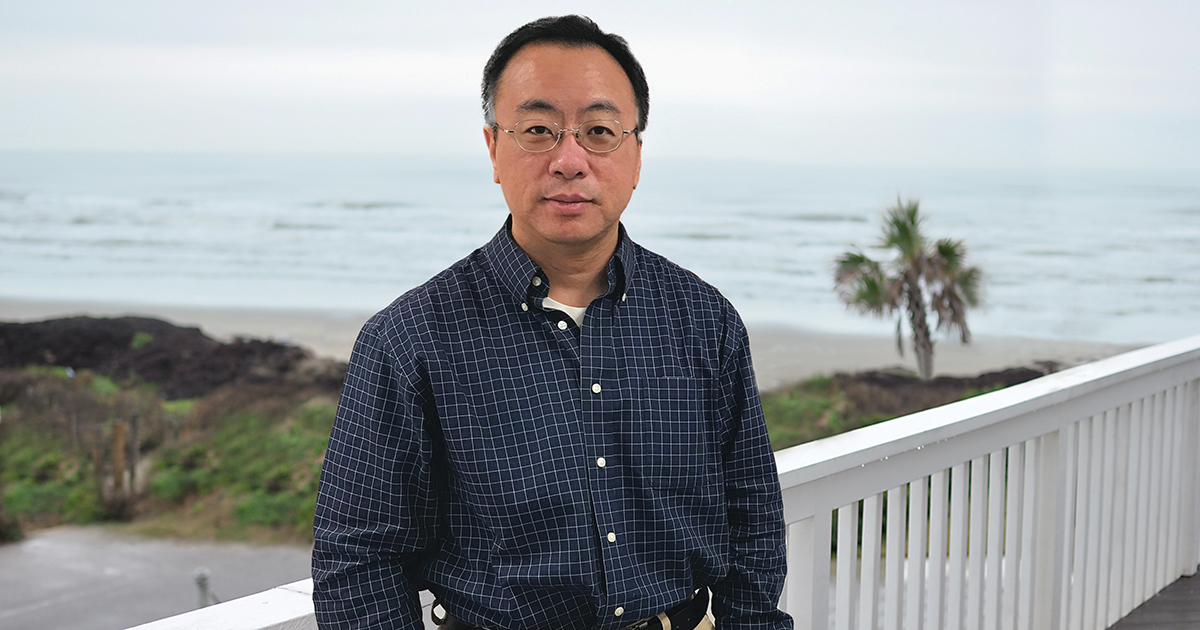Can Entrepreneurship Improve Health Outcomes?

Researchers have long studied how entrepreneurship benefits the health of local economies. But, Yunwei Gai, associate professor of economics, is one of the first researchers to study how entrepreneurial ventures affect the health of the people who live nearby.
A Babson faculty member since 2007, Gai is a health economist who uses data analysis to examine healthcare markets, systems, and policy. He’s also interested in the “health ecology,” or the combination of factors that affect health outcomes in a community. With the help of a three-year grant from the Faculty Research Angel Fund (FRAF), sponsored by the Arthur M. Blank School for Entrepreneurial Leadership, Gai teamed up with Babson colleagues for an interdisciplinary project exploring how healthcare entrepreneurship can alter a community’s health ecology and address health disparities.
“We’re looking at how entrepreneurship and entrepreneurs can help improve health outcomes in the U.S. and improve health equity across different socioeconomic and income backgrounds,” Gai explains.
Working with the Kerry Murphy Healey Center for Health Innovation and Entrepreneurship, the research team includes Wiljeana Glover, the Stephen C. and Carmella R. Kletjian Foundation Distinguished Professor of Global Healthcare Entrepreneurship and associate professor in the Operations and Information Management Division; Candida Brush P’14, F.W. Olin Distinguished Professor of Entrepreneurship; and Alia Crocker, associate professor of strategy.
Why would they expect entrepreneurship to yield healthier communities? “Entrepreneurs by nature are very disruptive and very innovative,” Gai says. “They may approach problems with a very different perspective or mindset, and that can be extremely useful. We need new ways of delivering health care more efficiently.”
“Entrepreneurs by nature are very disruptive and very innovative. They may approach problems with a very different perspective or mindset, and that can be extremely useful. We need new ways of delivering health care more efficiently.”
Yunwei Gai, associate professor of economics
To determine if healthcare startups influence health outcomes, Gai collected 10 years of data on health-related measures in more than 3,000 U.S. counties. The data included the percentage of people who have health insurance per county, obesity rates there, the prevalence of binge drinking, and access to nutritious food, among many factors. He then merged this data with information about privately held, venture capital-funded healthcare service startups in these counties.
His analysis revealed higher levels of entrepreneurship were linked to lower rates of diabetes, obesity, and HIV infection, but overall, “we didn’t find a great impact,” Gai says. Because this is such a new area of research, he has returned to the drawing board, considering how to design future studies to yield more meaningful information. It may help to zero in on one type of healthcare startup—say, primary care clinics or companies that make digital medical devices—so that “we can see more clearly how entrepreneurship activities contribute to well-being,” he explains. Gai adds that he and other researchers need more complete data about healthcare startups, including details such as locations of operation, management and ownership structure, and firms’ relationship to local governments.
“I know that entrepreneurship matters in health care, but I’ve never had a chance to do this research,” Gai says. He’s enjoying the collaboration. “My three colleagues are fabulous researchers, and we are learning a lot from each other.”
Posted in Insights






